This post may contain affiliate links. We may receive a small commission, at no cost to you, if you make a purchase. Read Disclosure.
“Hey, a little something, give me 1 Pound, eh eh eh eh, come on.”
This is the familiar choice of persuasive words, researched and practiced over years to perfection, that you will encounter a lot in Egypt.
This is known in Egypt as Baksheesh. It’s used to describe a small amount of money that’s been given either as a tip, bribe, or donation.
If you travel to Egypt, or many countries in the Middle East and North Africa, you will undoubtedly be introduced to baksheesh from the first day.
It is part of the Egyptian culture and plays are major role in the tourism industry.
But it can also feel overwhelming, and for some travelers, a little confrontational, so if you’re not familiar with this type of practice, then you’re going to want to keep reading to familiarize yourself with it before you go.
What’s the meaning of Baksheesh in Egypt?
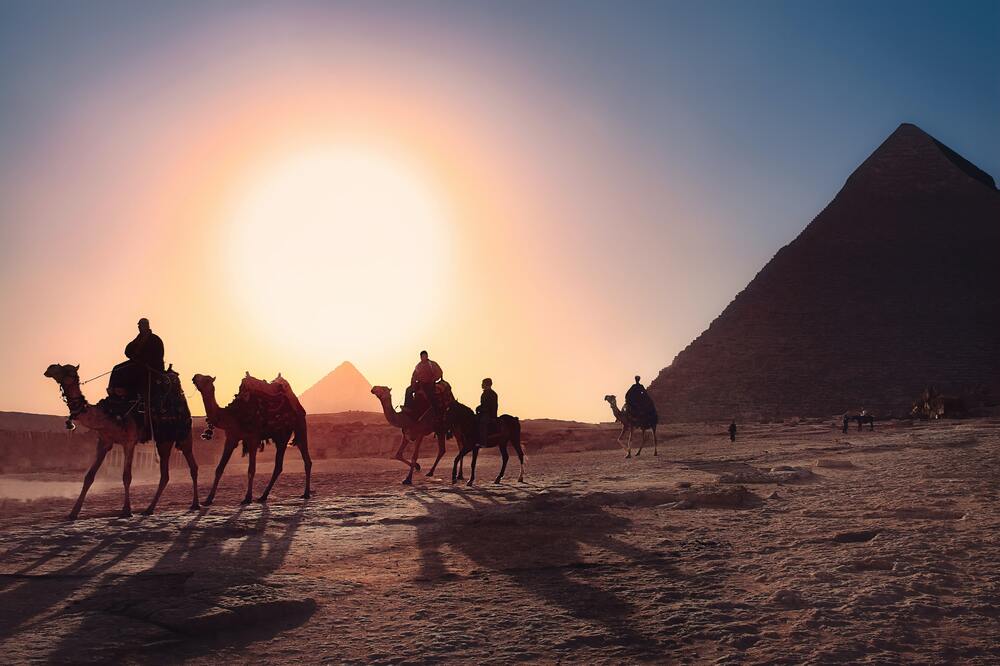
In Egypt, Baksheesh means one of three things:
- Begging – Someone out of nowhere just asks you for money, pleading “give me baksheesh”
- Tipping – Attempting to do something legit in an effort to get a gratuity
- Permission for Favors – The last form of baksheesh throughout Egypt is a tweak of tipping, favors are granted and under the table tips are given
Most people will encounter the latter two forms of Egyptian baksheesh.
When people use the term baksheesh, they are usually using it to talk about tipping in Egypt and to offer a sum of money in exchange for services.
Examples of Baksheesh
In order to understand what baksheesh looks like, here is an example of what happened to me.
I was walking to the museum in Luxor one evening, knowing exactly where I was going, and walking at a brisk pace to get there.
A 13 year old boy nudged my side and said “Hey, where you going?”
I didn’t respond, yet he continued walking with me and said “Hey, you turn left here.”
I continued walking, starting to ignore the boy more and more when he recited his next verse, “Hey, give me 1 pound, I showed you where to go (at this point I hadn’t even said a word, except “hey, how are you?”).”
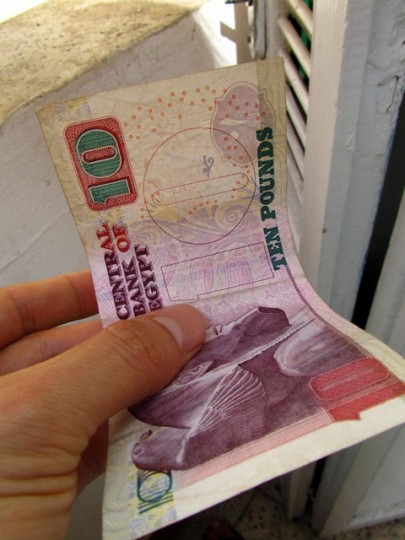
I almost choked on my tongue and then just grinned as I walked the 50 meters to the museum where I was already going.
It can feel aggressive, and if you’re not expecting it or know how to deal with it, can make you feel uneasy.
But it’s all part of the culture and is common practice amongst beggars in cities, as well as people working in tourism after a quick and easy buck.
The art of baksheesh in touristy areas of Egypt starts at an early age and is fine tuned throughout years of working with tourists who apparently have had unlimited supplies of cash for centuries.
Ways In Which You Encounter Baksheesh
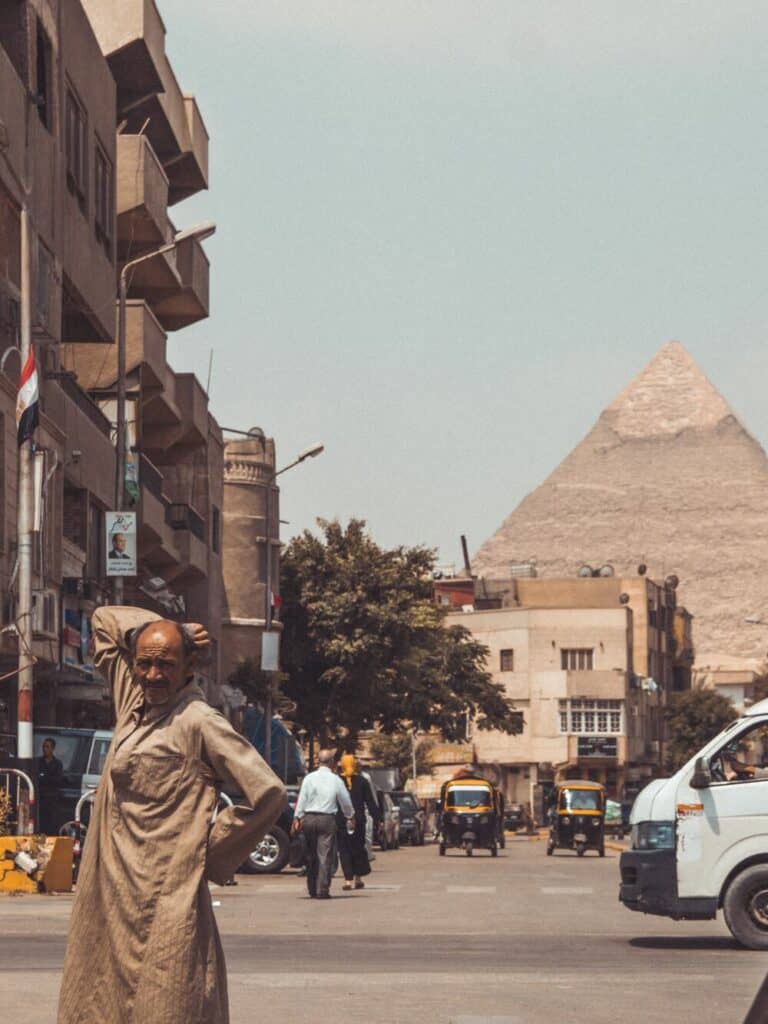
In order to know how to deal with baksheesh, you need to know the ways in which a person may use it.
Here are some ways in which people try to get baksheesh from travelers:
- They will try to relate in a personal way to their victim and try to establish a connection or link
- They may offer a service or piece of advice (can be useful or useless)
- Without asking permission, they may provoke someone to use their service (such as a taxi or following for directions)
- They may use all rules and regulations to their advantage and discard rules that will hinder (flaky or real)
- Initially they may give roundabout clues as to their motive of making a little money but typically they will appear friendly at first and then once you engage, their motives become more apparent
- They may come right out without hesitation and demand a couple of pounds or even come right out and say “give me baksheesh”
- They will make their target feel a bit guilty for not giving a tip
- If the victim still isn’t playing ball, they may start to get a little more aggressive (not so much in a threatening way, but in a conviction of the culprits wrongdoing). They usually are not out to attack you, but they will follow you for a long time.
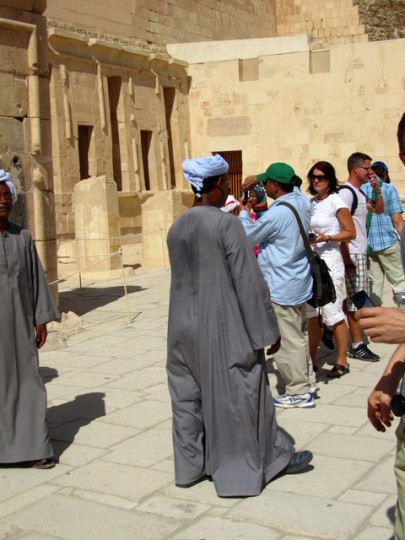
- They may also go up to a tourist, take off their hat or Arab style headdress and re-wrap it, then ask for a tip
- They may wear Egyptian traditional dress and ask tourists to take a photo with them, then ask for money
- They may try to show you a hidden site, that’s really just around the corner
- They may also stand outside of a random bathroom (maybe not yours) and get a tip before anyone enters even if the bathroom is free and they don’t work there
Ways to Handle Baksheesh When Traveling in Egypt
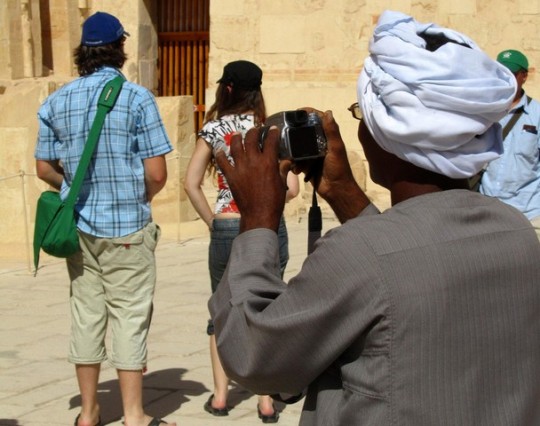
Traveling through Egypt you will certainly be faced with multiple circumstances of baksheesh on a daily occurrence.
As mentioned above, there are many ways in which you will encounter baksheesh and it can feel overwhelming when it comes at your time and time again.
To make you more at ease, here are some tips to dealing with it.
1. Think of it as normal
If you really need the service offered (bathroom, attraction, etc.) use your own discretion to determine what price it is worth and just think of it as the normal cost.
2. Just walk on
If the baksheesh is a complete bogus claim, refuse to make eye contact with the tout and walk on.
Attempt to breeze past without speaking, playing stupid.
If the solicitor gets more aggressive, don’t sweat it, they won’t hurt you or even chase you. Just walk away at full speed.
3. Get a tour guide
Guides are great at keeping baksheesh at bay since they speak to local language. You do need to tip your guide, but at least you only tip one person.
4. Get a private driver
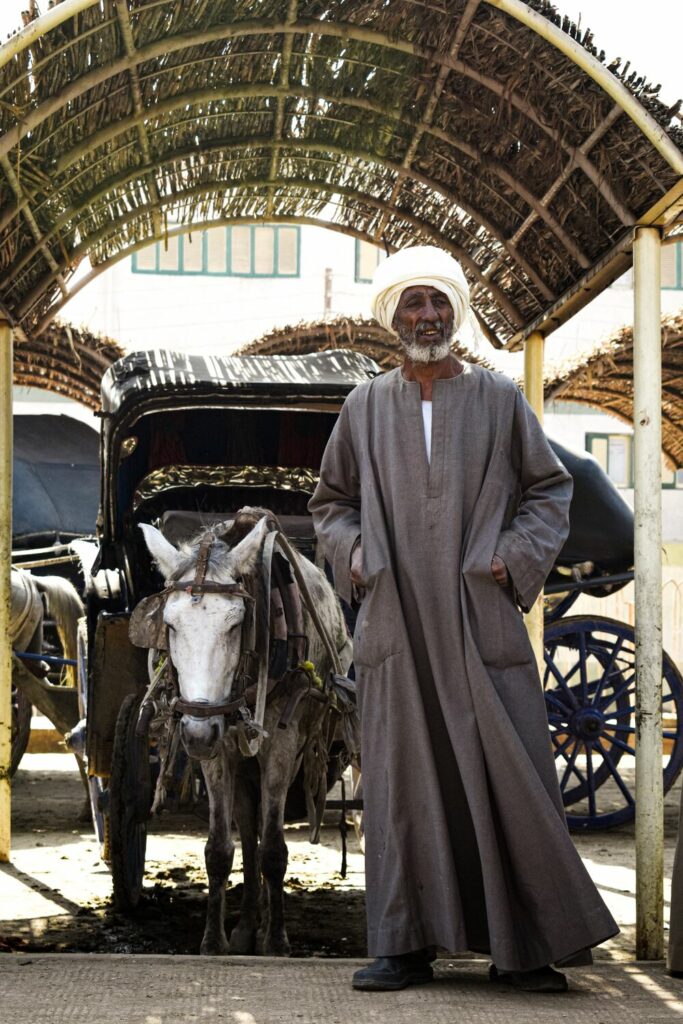
You can avoid confrontations on public transport by having someone drive you around all day and drop you off outside attractions you want to see.
5. Carry small bills
It’s always a good idea to carry a supply of small bills in the Egyptian pounds. This makes it easier to give appropriate tips without giving too much.
6. Be mindful of the situation you’re in
Baksheesh is often given in exchange for a service or favor received, so if someone has given you a favor and you’ve accepted it, then you’re more obligated to give a tip.
Consider the context and circumstances before deciding whether or how much to tip.
For example, tipping a tour guide or a porter who has provided exceptional service is generally expected.
7. Be discreet
If you do give baksheesh, it’s best to be discreet and avoid flaunting money.
Roll a bill up in your hands and shake hands with them as a way of giving them the money.
This helps maintain a respectful atmosphere and prevents any potential misunderstandings or uncomfortable situations.
Sometimes if someone sees you give a baksheesh, others will flock over to you.
8. Negotiate prices upfront
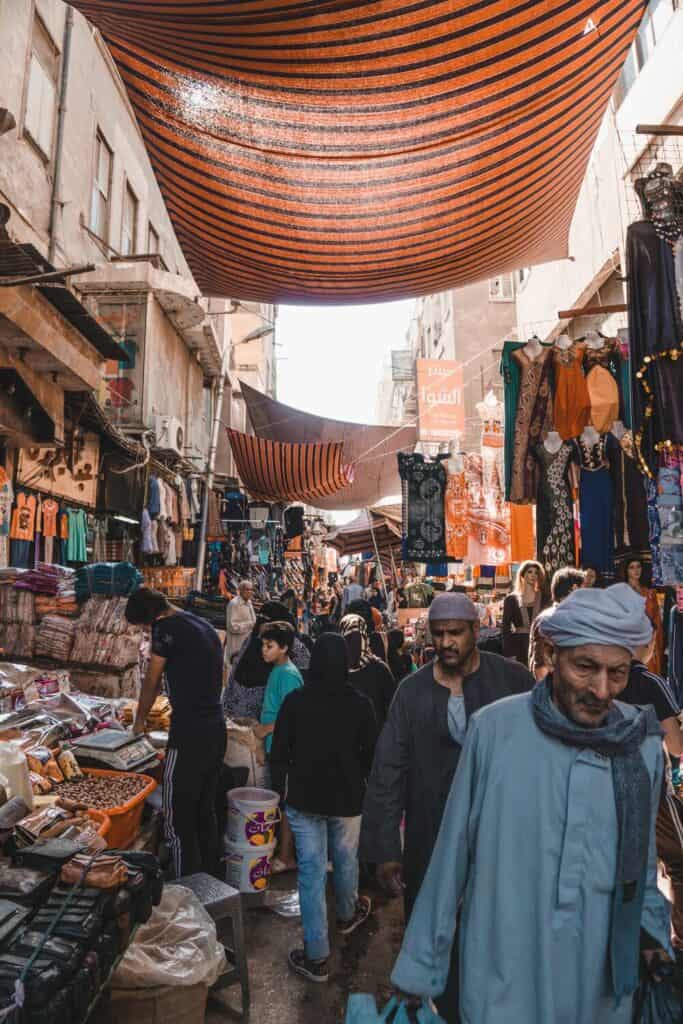
In some countries, baksheesh can be seen as an opportunity for negotiation.
If you’re unsure about the appropriate amount to tip, negotiate and agree on the price or tip beforehand to avoid any confusion later.
9. Respect local customs
Remember that baksheesh is a cultural practice, and it’s important to respect and adhere to local customs.
While there are some who take advantage, there are others who deserve their baksheesh (good tour guides and private drivers, for example).
Don’t go in with the mindset of not tipping in Egypt, but understand it’s a way to show appreciation for the local culture and contribute positively to the community.
10. Don’t feel obligated
While tipping is customary in many places, it’s not mandatory in all situations. Use your judgment and assess whether the service or assistance received warrants a tip.
You should never feel obligated to tip if the service was subpar or if it goes against your principles.
Final Thoughts
The art of baksheesh is ingrained into the minds of the people and ways of life in the tourism industry in Egypt.
If you are prepared or equipped with a little forewarning, baksheesh can be an amusing part of the Egyptian style and may even prove to be a bit of fun.
Though it sometimes drives people crazy, think of it with an open mind, and try not to get frustrated!
Note: Egyptians are some of the nicest and most hospitable people that I have encountered in the entire world. The art of baksheesh mostly pertains to people that work in the tourism industry day in and day out, searching for a little extra income.
Bio: Mark Wiens graduated from university and decided to indefinitely travel around the world. He thrives on exploring the local side of cultural travel by observing people and dining on all forms of street food. Check out his world adventures at Migrationology.
Tours of Egypt
If you did not want to travel to Egypt as an independent traveler, G Adventures offer guided tours. We partner with G Adventures for their commitment to the supporting the environment and conserving local cultures.
We also partner with Globus Family of Brands, which are also committed to cultural and environmental conservation. Here are some of their Egyptian Tours at different price points.
GLOBUS DISCOUNT JUST FOR YOU!
We’ve secured an exclusive yTravel discount: Save $100 per person on select 2023 and 2024 Globus and Avalon Waterway Vacations. Use the code: YTRAVEL when booking online at the Globus, Cosmos, and Avalon Waterways websites, by calling Globus and Avalon Waterways directly, or booking with a preferred Travel Advisor. Terms & Conditions.
More Egypt & North Africa Travel Tips
Need more inspiration for your travels to Egypt and North Africa? Here are some other helpful guides…
Ever been to Egypt? What did you think of the baksheesh strategies? Let us know in the comments.
[ad_2]
Source link
